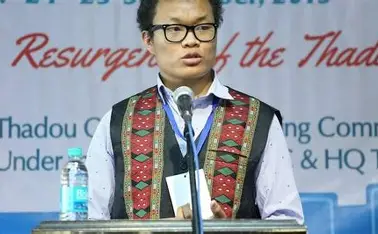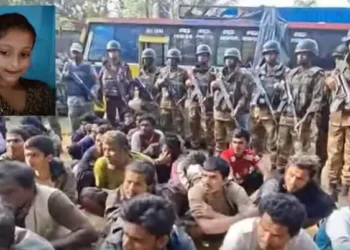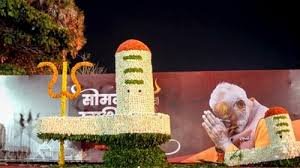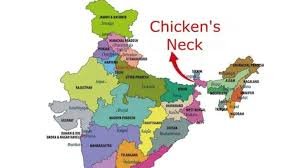A TIM-led delegation’s visit to Imphal, blocked by hotel confinement, has stirred a political storm within the Thadou community. Branded as “traitorous” and unrepresentative by their own apex body, the move is seen as a Meitei-backed attempt to stage tribal endorsement for opposing the SoO agreement.
BY PC Bureau
August 7, 2025: A controversial visit by Thadou Inpi Manipur (TIM) delegates to Imphal ended in virtual hotel custody on Wednesday, as authorities restricted their movement over fears of unrest. The delegation, led by self-styled leader Michael Lamjathang, was confined to The Classic Hotel and barred from proceeding to a nearby venue—an action TIM slammed as “politically motivated” and a violation of their constitutional rights.
In a press statement issued late Wednesday, TIM claimed the Government of India—currently overseeing Manipur under President’s Rule—had “forcibly confined” its members. It described the move as a “disturbing attempt to appease extremist elements who oppose peace and indigenous unity in Manipur.” The group insisted it was not involved in any negotiations related to the Suspension of Operations (SoO) agreement with Kuki-Zo armed groups and demanded that all movement restrictions be lifted immediately.
READ: Thadou Apex Body Rebuffs TIM’s Peace Talks with Meiteis
The incident underscores the deep ethnic fault lines that have plagued Manipur for over two years. That a delegation of tribals, led by Michael Lamjathang and arriving from Delhi for “peace talks,” could not safely step out of a hotel in the heart of Imphal highlights the volatile security landscape—particularly for members of the Kuki-Zo community. If there was any threat to Lamjathang and his delegates, it would have come from Meitei groups, as there are virtually no Kuki-Zo residents left in Imphal following the ethnic violence that displaced thousands.Tensions were further compounded by Lamjathang’s political background. A known spokesperson for the BJP and seen as a close associate of former Chief Minister N. Biren Singh, Lamjathang has long faced criticism from Kuki-Zo and Thadou groups for aligning with Meitei interests.
While official reasons for the hotel confinement remain undisclosed, observers believe it was a preventive measure, given the simmering hostility in Imphal. Many in the Meitei community remain unconvinced about the current dialogue process and claim to possess a clearer understanding of the dynamics within Kuki groups than some tribal representatives themselves.
There is also suspicion over the composition of Lamjathang’s delegation, which reportedly included several individuals from the Haokip clan. Prominent Haokip figures—such as PS Haokip, Dr. Seilen Haokip, German Haokip, Dr. Lamtinthang Haokip, and Paolienlal Haokip—have been repeatedly cited by Meitei groups as central to the ongoing violence and unrest in the state.
Backlash From Thadou Leadership
Within hours of TIM’s statement, the Thadou Inpi General Headquarters (TIGHQ)—the apex administrative and political body representing the Thadou people—issued a scathing rebuttal, calling the Imphal visit unauthorised, illegitimate, and damaging to the Thadou cause.
“We categorically state that we do not and will not recognise or endorse any actions or undertakings carried out in the name of TIM,” the TIGHQ declared in its official release, signed by Vice President (Administration) Th. Mangseh Elmun.
READ: Border Fencing: Meitei U-Turn and Silencing of Tribal Voices
“This so-called engagement has revealed the dangers of rogue individuals claiming to represent an entire community without mandate or consultation.”
TIGHQ went further, accusing the TIM group of “treachery” and alleged collusion with valley-based actors who have historically opposed tribal aspirations—particularly the collective push for a separate political or administrative arrangement for tribals outside of Manipur.
Observers believe the visit was a calculated move by Meitei civil society groups to manufacture an illusion of tribal participation and consensus against the extension of the SoO agreement. Several valley-based CSOs have openly opposed any accommodation of Kuki-Zo armed groups, holding them responsible for the ethnic clashes that have ravaged the state since 2023.













